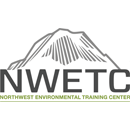03-03-2015 - Natural Resource Damage Assessment - Washington, DC
Training Provider: Northwest Environmental Training Center
Dates: TU Mar 03, WE Mar 04 from 8:30am to 4:30pm
Location: Washington, DC
 No Reviews
No Reviews
We're sorry, but registration for this event has ended
View Upcoming Natural Resource Damage Assessment In Washington, DC| TICKET TYPE | PRICE | QUANTITY |
|---|---|---|
|
One Workshop Ticket more info» | $545.00 | Registration Ended |
| Registration Ended | ||
Why Should You Take This Natural Resource Damage Assessment Course?
In this two day Natural Resource Damage Assessment workshop, attendees will learn the regulatory basis, current practice, and the application of tools and techniques for conducting natural resource damage assessments (NRDA). Attendees will also learn what characteristics could make a particular site vulnerable to an NRD claim, how a damage assessment is conducted, approaches for bracketing potential liability, and approaches to resolving an NRD claim. NRDA provisions are contained in federal law (CERCLA, FWPCA, and OPA) and many state statutes. If a particular site (either aquatic or upland) has received hazardous substance or oil contamination, even if the contamination has been remediated, the responsible party may still be liable through a NRD claim for "interim lost resources and their services". This material will assist the attendees in understanding and navigating the sometimes arcane and complex technical aspects of an NRDA.
In the first day of the workshop, attendees will learn the basics of NRDA law and regulations, the concept of making the public whole for losses, potentially responsible party (PRP) defenses to NRDA claims, trustee burden of proof, causation, and other issues. The major phases of NRDA from discovery, injury assessment, lost services calculation, restoration planning and benefits calculation and the settlement process will be covered. Participants will learn about the spectrum of approaches to NRDA ranging from fully collaborative efforts between the trustees and PRP, arms length negotiations to full-blown courtroom litigation. Additionally, participants will learn how to coordinate remedial and NRDA activities at sites to take advantage of synergies in field sampling, site characterization, mapping, etc.
The second day of the workshop will consist of developing a natural resource "Debit" and "Credit" value. The "debit" module will focus specifically on the applied science and techniques used in for accounting for losses of the multiple types of natural resource services that could be affected by oil or chemical releases. Specific tools and approaches for several resource categories will be introduced and demonstrated with examples from completed NRDA cases or hypotheticals that employed "injury metrics" such as biological survey information, sediment chemical quality guidelines, tissue chemical concentrations, etc. An overview of spatial analysis methods (using GIS), resource "exchange values"and loss of services calculation (using Habitat Equivalency Analysis, HEA), etc. will be provided. Attendees will have an opportunity to participate in a hands-on class exercise with several injury models and simple debit side HEAs.
The "credit module" will cover how restoration "credit" can be calculated to off-set natural resource "debit". Application of habitat quality information, determination of initial "baseline" condition, estimation of "service lift" and resource "exchange values" for restoration actions will be discussed. Tools and methods for "net service" accounting using GIS and HEA will be demonstrated using settled case and hypothetical examples. Course instructors will also briefly touch on the ecosystems services accounting model.
Topics To Be Covered Include:
- NRDA approaches from fully collaborative efforts between the trustees and PRP, arms length negotiations to full blown courtroom litigation.
- Development "injury metrics" such as biological survey information, sediment chemical quality guidelines, tissue chemical concentrations, etc.
- An overview of spatial analysis methods (using GIS),
- Resource "exchange values" for losses and gains
- Loss and gains in services calculation (using Habitat Equivalency Analysis, HEA), etc.
- Application of habitat quality information, determination of initial "baseline" condition, estimation of "service lift" and resource "exchange values" for restoration actions
- Tools and methods for "net service" accounting using GIS and HEA will be demonstrated using settled case and hypothetical example
- Application of NRDA techniques to ESSA
Intended Audience:
This course is intended for environmental professionals, consultants, researchers, students, industrial site owners and operators, and government agencies such as USDA, DOD and DOE. It is designed for professionals related to oil or chemical contaminated sites. Environmental professionals seeking a greater understanding of natural resource damage assessment claims and their resolution also will greatly benefit from this workshop.
What to Bring to Class: Please bring to class a laptop with MS Excel installed for simple HEA, a notebook, and several pencils.
TBD, Washington, DC
TU Mar 03, WE Mar 04 from 8:30am to 4:30pm

Northwest Environmental Training Center (NWETC) is a 501(c)(3) training organization that has provided expert environmental training for professionals since 1999. We provide certification workshops and programs nationwide that allow professionals to expand their expertise, comply with regional and national regulations, and develop their skills. Our course offerings are centered on current policy, standards, and regulations within the following subject matters: Water, Chemistry, Biology, Air, Remediation/Toxicology, Technical/Software, and Leadership & Management. Private and custom on-site training is offered by request both regionally and nationally.

Questions? 954-400-0595


